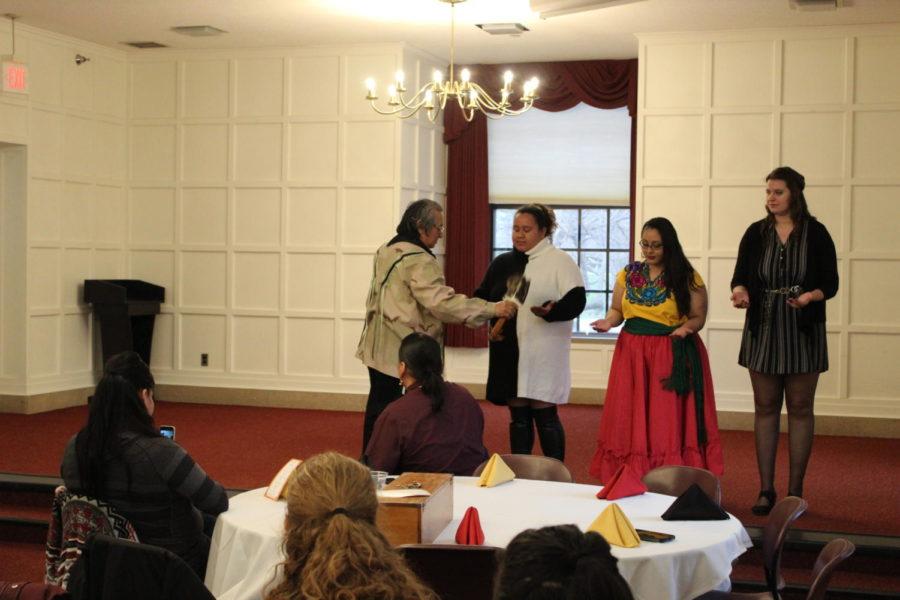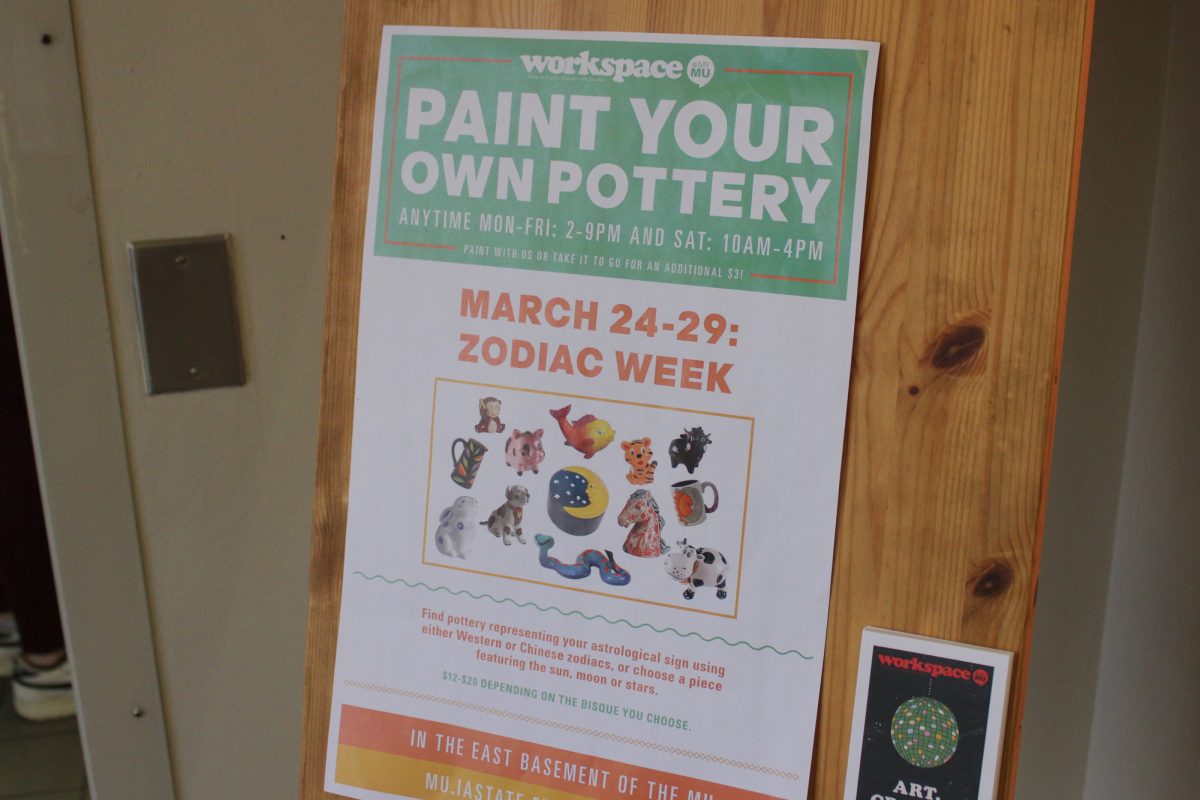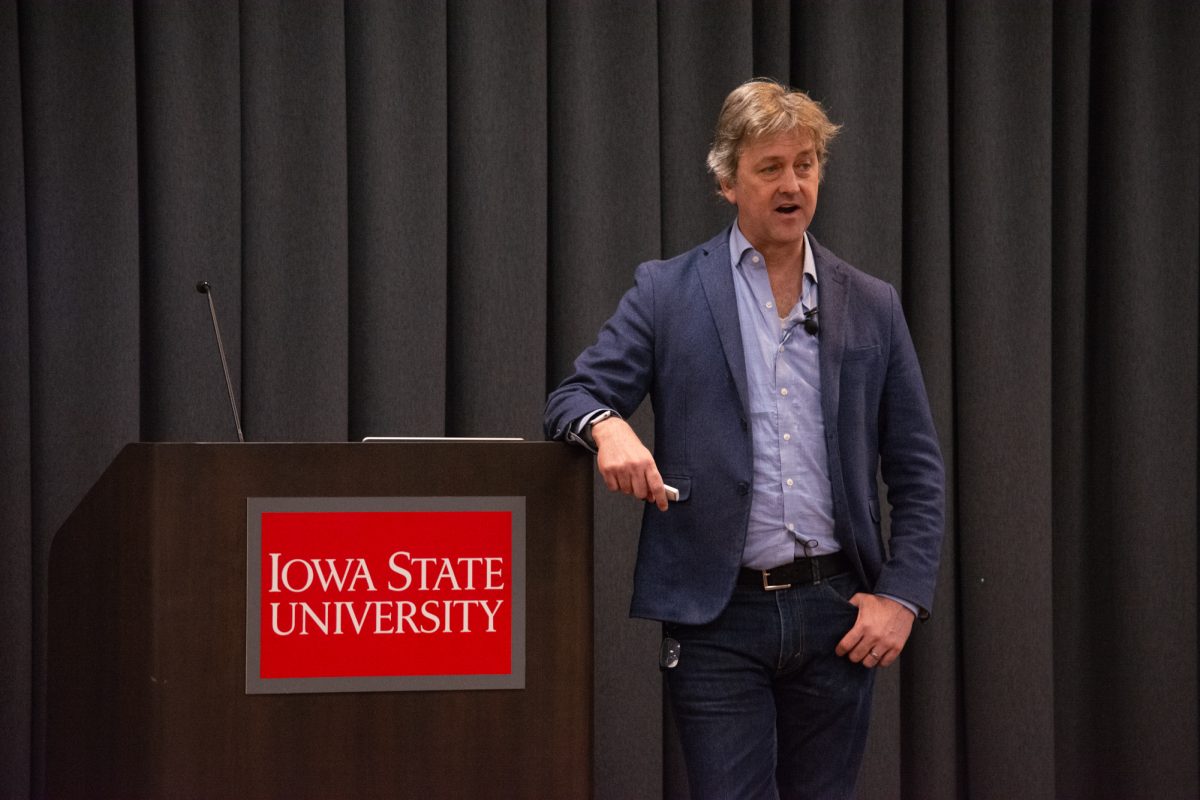Native American students honored at first-ever Native American graduation ceremony
Isa Cournoyer (left), Cueponi Espinoza (center) and Rebekah Bell (right) all received blessings from the elder, Alfred White Eyes.
April 14, 2019
Friends and family gathered Friday for Iowa State’s first Native American graduation ceremony.
Roughly 25 people traveled to the Cardinal Room of the Memorial Union at 5 p.m. Graduates and attendees were able to add to an ancestry showcase, which featured family pictures, artifacts and objects of significance.
The event featured a land acknowledgement, delivered by Cueponi Espinoza, a graduate student in the school of education and one of the graduates honored at the event. Espinoza said it was important to recognize Iowa State is built on the land of the Sioux and Meskwaki.
An elder with tribal affiliations to the Omaha, Cheyenne and Lakota tribes, Alfred White Eyes, led a prayer and blessed both the attendees and the food that was served using water and eagle feathers.
There were three graduates in attendance including Espinoza, Rebekah Bell, a senior in biochemistry, and Isa Cournoyer, a senior in journalism and mass communication.
Those who graduated were also all individually blessed by White Eyes, whole called them to the stage while Christy Oxendine, one of the organizers and a multicultural liaison officer for the College of Liberal Arts and Sciences, gave them their stoles.
An exchange of gifts also took place, where Oxendine gave White Eyes small gifts as a show of thanks for traveling to attend and partake in the celebration.
Oxendine said that she was happy to be able to include the friends and family of those who graduated in the event.
“What I was most excited about was students being able to have family and friends here,” Oxendine said. “I liked that aspect because, for me, you don’t go through college by yourself, and particularly coming from indigenous communities. It’s so intergenerational to have the opportunity for people to share this with other people, that was the most exciting for me.”
Having an elder at the event, Oxendine said, made the space more sacred and also provided some exposure and education for individuals in attendance who may not get as much exposure to Native American culture.
Oxendine said having an event similar to this was something she had wanted to do for over a year as a way to honor indigenous students and recognizing them.
“I hope the university starts to understand that we are here, Native faculty, staff and students, and if there’s some way the University can give space and acknowledgement to that, that would be great,” Oxendine said.
The stoles handed out at the event, Espinoza said, carried a lot of meaning because they represented “existence and resistance,” by succeeding in higher education, a system which holds cultural bias toward white men.
“For us to be able to go through all that, all these systems of oppression these systems that don’t allow people like us into these spaces, and to finally make it out with a degree, that’s existence and resistance,” Espinoza said.
Espinoza also said the event was an important way for her to honor her ancestors, and reflect on the newfound responsibilities she now holds because of her degree.







